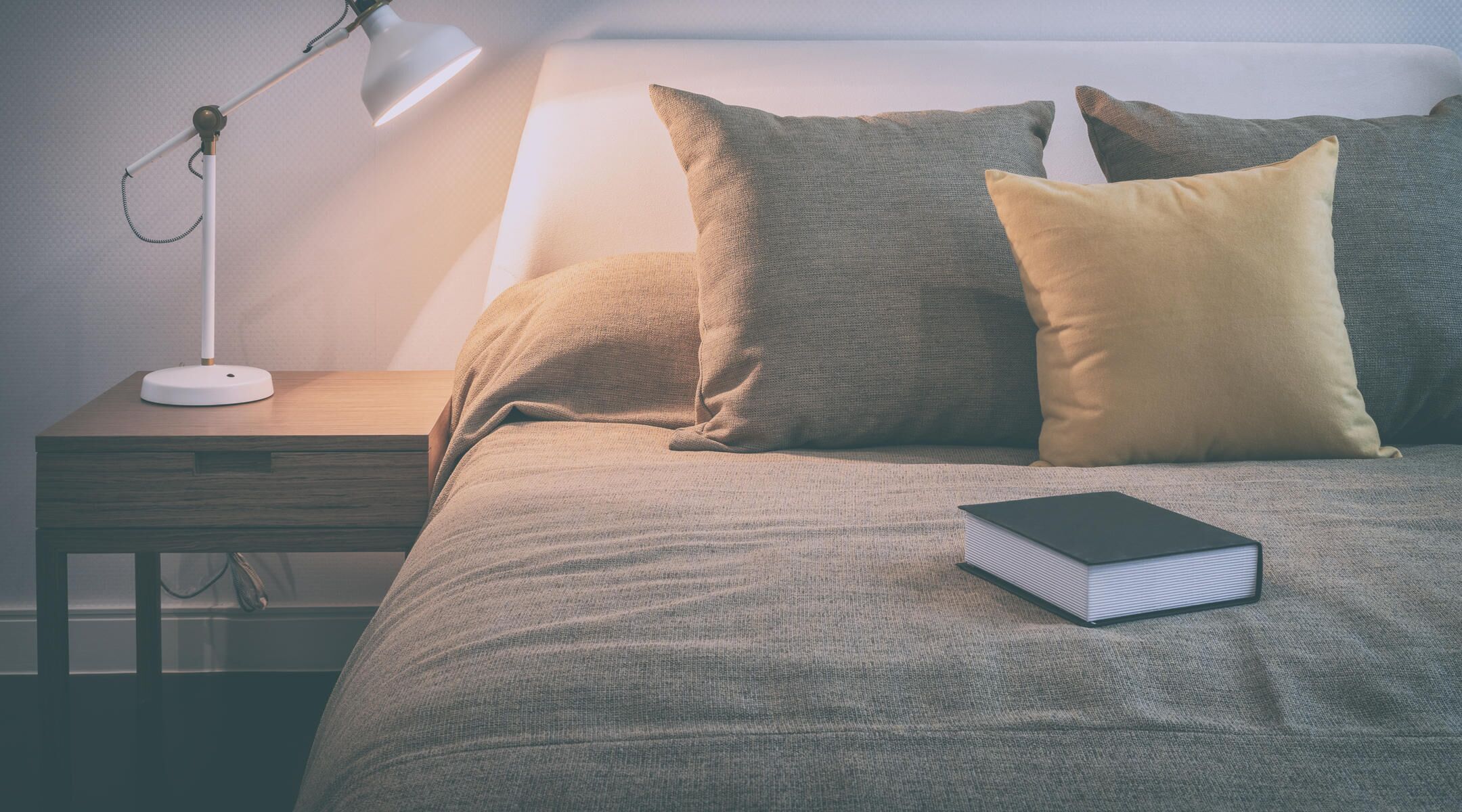With all the hormonal changes happening in your body, your senses are probably heightened, making you more aware of your surroundings—day and night. If you’re feeling restless while trying to catch some ZZZs, zeroing in on your sleep environment can help improve the quality and quantity of your sleep. The following tips were actually created for the young children we work with, but we’ve found they also come in handy for moms-to-be:
1. Room-darkening curtains
Think about how well you sleep at a nice hotel. It’s those thick curtains that create a wonderful sleep cave. A good way to determine if your room is dark enough is to shut off the lights and stand in the room for a few moments. After your eyes adjust, the room should be just light enough that you can barely see the outline of your hand. In an urban environment, this level of darkness is hard to achieve with blinds alone, so we recommend installing blackout liners or heavy drapes. Not ready to make the investment in new window coverings? Try this temporary solution: Tape up black garbage bags in your windows using painter’s tape. More permanent shades may be a worthwhile investment if you notice a difference in your sleep that night.
2. Temperature
Most people sleep in bedrooms that are much too warm. This makes it difficult for your bodily functions to slow down and keep you in a restful state. The ideal temperature for sleeping is 68 to 72 degrees Fahrenheit. Invest in an indoor room thermometer to see how your room truly measures up. Then make whatever changes you can to achieve the ideal sleeping temperature. If you’re prone to hot flashes during pregnancy, cooler sleeping temps will feel fantastic.
3. White noise
White noise is the must-have ingredient for uninterrupted sleep. We recommend purchasing or borrowing an actual white noise machine rather than using radio static or a bathroom fan. These machines generally cost under $30 and are highly effective and easily portable. But, in a pinch, a loud table fan would work too. White noise is wonderful because it helps cancel out noises that can rouse you out of lighter stages of sleep. It may take a night or two to get used to white noise in your bedroom, but eliminating external noises (ambulance, snoring partner, furnace kicking in) will go a long way in helping you sleep more soundly during your pregnancy.
4. Downtime
Another overlooked element of good sleep is adding wind-down time to the end of each day. You wouldn’t put a baby in front of a television right before bedtime, so don’t do it to yourself either. If you’re having difficulty sleeping, put a stake in the ground and declare that the last hour before bedtime is reserved only for calming, nonstimulating activities. Take a bath, read a book or write in your pregnancy journal—you’ll be thankful you made time for these things once the baby arrives!
5. Uninterrupted three hours
The first three hours of sleep are when we’re in our deepest, most restorative sleep. If you can ensure this time isn’t interrupted, you’ll feel much more well rested in the morning. This is especially helpful to know during those first few months home with baby who needs around-the-clock care. If you can find ways to protect your first three hours of sleep each night (example: have your partner do the 10 p.m. feeding), you’ll have much more energy during the day and be able to enjoy your adorable newborn even more!
Please note: The Bump and the materials and information it contains are not intended to, and do not constitute, medical or other health advice or diagnosis and should not be used as such. You should always consult with a qualified physician or health professional about your specific circumstances.
Navigate forward to interact with the calendar and select a date. Press the question mark key to get the keyboard shortcuts for changing dates.



















































